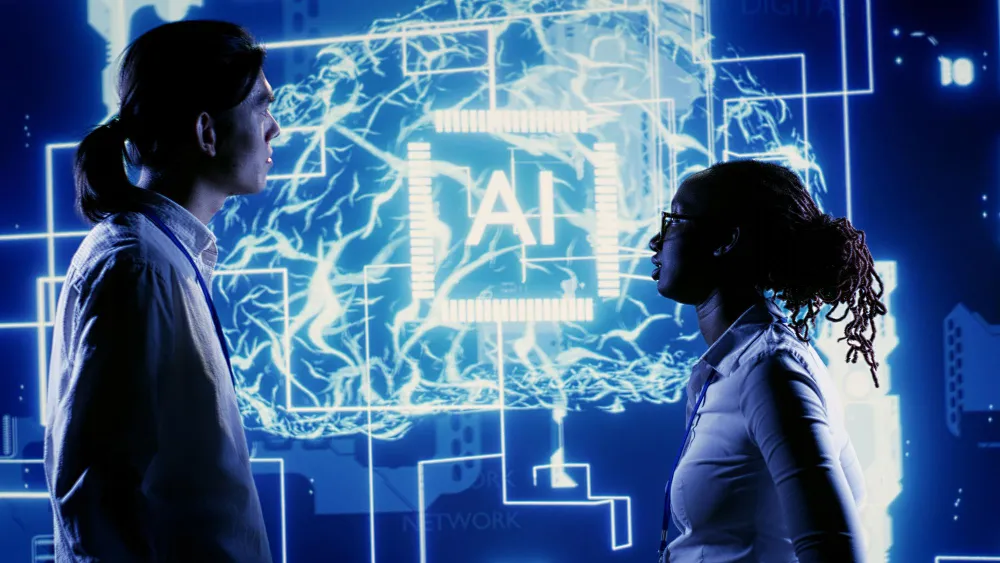Artificial Intelligence (AI) is a term that has become increasingly prominent in recent years, often evoking images of futuristic robots or advanced computer systems capable of performing complex tasks. But what exactly is AI, and how does it work? This blog post aims to demystify AI, exploring its core concepts, types, and the significant impact it has on various aspects of our lives.
Defining Artificial Intelligence
At its core, Artificial Intelligence refers to the ability of machines, particularly computers, to perform tasks that typically require human intelligence. These tasks can range from simple actions like recognizing speech or images to more complex processes such as decision-making, problem-solving, and learning from experience. The ultimate goal of AI is to create systems that can function autonomously and intelligently, mimicking or even surpassing human capabilities in specific areas.
AI is built on the foundations of computer science, mathematics, and neuroscience. It involves programming computers to process information, identify patterns, and make decisions based on data. Unlike traditional software, which follows a set of predefined instructions, AI systems can adapt and improve over time, learning from new data and experiences.
The Types of AI: Narrow, General, and Superintelligent
AI can be broadly categorized into three types: Narrow AI, General AI, and Superintelligent AI.
- Narrow AI: Also known as Weak AI, Narrow AI is the most common form of AI in use today. It is designed to perform specific tasks or solve particular problems, such as facial recognition, language translation, or playing a game of chess. Narrow AI excels in its designated area but lacks the ability to perform tasks outside its defined scope. Examples of Narrow AI include virtual assistants like Siri or Alexa, recommendation algorithms used by Netflix and Amazon, and self-driving car technology.
- General AI: Also known as Strong AI, General AI refers to systems that possess the ability to understand, learn, and apply intelligence across a wide range of tasks, much like a human being. General AI does not yet exist, but it represents the next frontier in AI development. A General AI system would be capable of performing any intellectual task that a human can do, with the ability to transfer knowledge and skills across different domains.
- Superintelligent AI: Superintelligent AI is a theoretical concept that refers to AI systems that surpass human intelligence across all areas, including creativity, problem-solving, and emotional intelligence. While Superintelligent AI remains speculative, it is often discussed in the context of potential risks and ethical considerations, as such a system could have profound implications for society and humanity's future.
The Impact of AI on Society
AI's impact on society is already significant and is expected to grow as the technology continues to advance. In everyday life, AI enhances convenience and efficiency through applications like personalized recommendations, smart home devices, and virtual assistants. In business, AI is transforming industries by automating processes, optimizing operations, and enabling data-driven decision-making.
Healthcare is another area where AI is making a profound difference. AI-powered tools are improving diagnostics, personalizing treatment plans, and accelerating drug discovery. For example, AI can analyze medical images to detect early signs of disease, potentially saving lives through early intervention.
However, the rise of AI also brings challenges. Ethical concerns such as privacy, bias, and job displacement are critical issues that need to be addressed. As AI systems become more integrated into our lives, it is essential to ensure that they are developed and used responsibly, with considerations for their social and ethical implications.
Conclusion
Artificial Intelligence is a powerful and transformative technology that is reshaping the world around us. While we are still in the early stages of its development, AI's potential to revolutionize industries, enhance human capabilities, and solve complex problems is immense. Understanding what AI is and how it works is the first step in harnessing its potential to create a future that benefits everyone. As we continue to explore the possibilities of AI, it is crucial to approach its development with caution, ensuring that it serves humanity's best interests while addressing the challenges it presents.





















